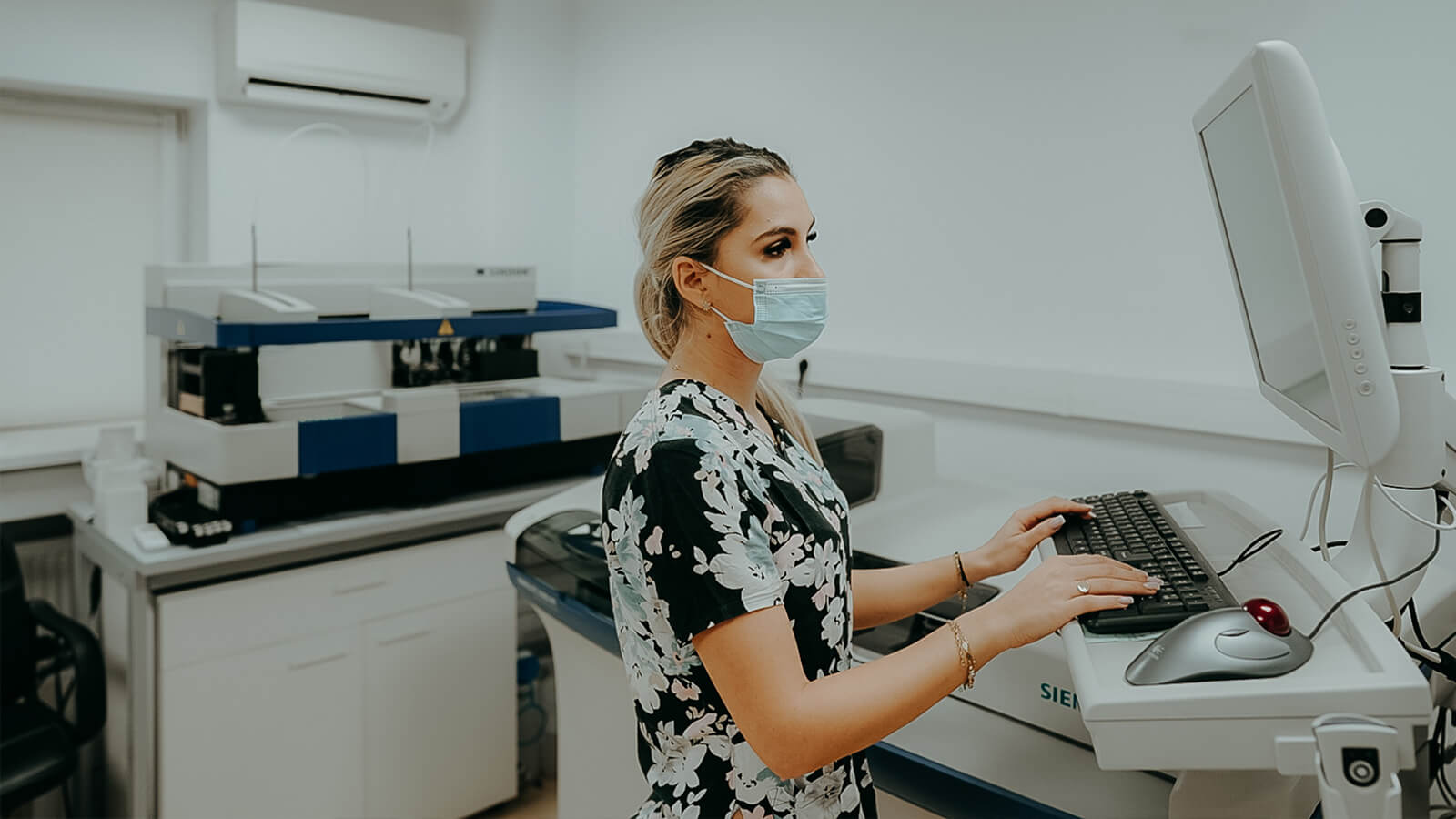
Heavy Metal Chelation
Chronic heavy metal poisoning has become an important component of contemporary pathology. Since heavy metal toxicity is rarely covered in medical school and only a small number of laboratories offer specialized testing for their detection, they are typically challenging to identify and diagnose.
Add to that the fact that chronic heavy metal poisoning can mimic many diseases, and you have the full picture of a polymorphous, atypical pathology that is difficult to diagnose. Our clinic offers a laboratory that tests for heavy metals in blood, urine, and hair, as well as efficient treatment methods for removing heavy metals from the body.
Heavy metal poisoning - Causes
The toxicity of heavy metals to the body is a real and serious concern that we frequently overlook for the following reasons:
Exposure is unavoidable because metals are found in all aspects of the environment, including food, water, air, cosmetics, some medications, and medical implants.
Metals accumulate in the body over years or decades and cause chronic disease Intoxication in this situation is a quasi-static process, so the effects from one day to the next are not obvious, but symptoms arise gradually over time that are difficult to diagnose. As a result, many patients are treated for neurological or psychiatric disorders, inflammatory pathologies, or autoimmune diseases that were actually caused by heavy metal exposure.
Metals are not broken down by microorganisms; they are also removed naturally from the body, but have a very long half-life (mercury accumulated in the brain -25 years, lead accumulated in the bones -28 years).
Toxicity is exacerbated by the sum of the effects triggered by metal interactions. The complete spectrum of the body's heavy metal load should be considered while administering chelation therapy. Single metal dosage is frequently devoid of therapeutic insights.

Heavy metals
in the body.
Symptoms
Patients in whom we identify a broad spectrum of heavy metals usually come to our clinic with various pathologies: neurological diseases, endocrine diseases, cancer, autoimmune diseases. For example, mercury is known as "the great imitator" because the symptoms of chronic mercury poisoning typically mimic those of other chronic diseases.
Many of these patients have so-called undefined, unclear chronic diseases with multiple, varied, and vague symptoms that do not fit into traditional diagnoses, according to existing protocols. With no known explanation for their symptoms and occasionally no clear diagnosis, these patients provide challenges for many of the specialists they see. Treatment of these patients without testing for and removing heavy metals leads to poor outcomes and, in the case of cancer, to recurrences.

Heavy metal.
Testing
At the ImunoMedica clinic, we conduct specific heavy metal detection testing in urine and blood following a challenge with chelating agents.

The only test that can accurately diagnose chronic heavy metal poisoning is the challenge test. Heavy metals are buried in cells and circulate freely in the blood in extremely small amounts, making it impossible to identify them without the challenge test, which is why the typical non-challenge tests do not disclose the true presence of heavy metals in the body.
Heavy metal testing is performed in the clinic's own laboratory using the Inductively Coupled Plasma Mass Spectrometer, a piece of equipment with a cutting-edge technology superior to that which has been in use up to date. This technology enables us to test blood, urine, saliva, and hair for a panel of 20 heavy metals at the lowest possible cost on the market.
When we have
heavy metal poisoning?
The challenge test unequivocally indicates, depending on the degree of intoxication that has taken place, a significant increase of certain heavy metals in the urine excreted two hours after the chelation infusion. In general, the heavy metals most commonly found in these intoxications include aluminium, mercury, arsenic, lead, cadmium, nickel, and chromium, the majority of which have high neurotoxic and carcinogenic potential.
Heavy metals in the body
A risk factor
The World Health Organization was the first to formally acknowledge heavy metals as a significant risk factor for human health. The WHO released a report titled "Health risks of heavy metals from long-range transboundary air pollution" as early as 2007.
The report reveals the link between:
- mercury exposure and neurological diseases;
- cadmium toxicity and renal and bone ailments;
- lead poisoning and high blood pressure or developmental abnormalities in children.

Only a few of the associations are presented in this document. There is already scientific evidence linking the long-term presence of heavy metals in the body to the current upsurge of autoimmune illnesses, infertility, and even cancer in the population.
Officially, the US International Agency for Cancer Research, an affiliate of the National Cancer Society, has classified aluminium, arsenic, cadmium, chromium, nickel, and plutonium as Group 1 - confirmed human carcinogens, and lead and its compounds as Category 2A - probable human carcinogens.
These are but a few of the consequences of heavy metal poisoning:
-
Chronic arsenic toxicity
Long-term exposure can result in neurological issues, lung disease, gastrointestinal problems, cancer, vascular disease, diabetes, and certain cancers such as skin cancer, bladder cancer, lung, liver, colon, and kidney cancer, as well as infertility.
-
Chronic lead toxicity
Chronic exposure to lead can cause abdominal pain, constipation, depression, memory loss, and irritability. As more lead accumulates in the body, hypertension, reproductive organ damage, birth defects, psychosis, allergies, kidney disease, and some brain disorders ensue. Chronic lead exposure increases the risk of lung cancer, stomach cancer, bladder cancer, and infertility.
-
Mercury toxicity
Mercury buildup in the tissues gradually leads to memory issues and insomnia, as well as general nervous system disorders, lung and brain lesions, chronic fatigue, Alzheimer's disease, vision problems, skin alterations, gastrointestinal problems, and infertility. When we talk about mercury poisoning, we are referring mainly to chronic mercury poisoning.
-
Chronic aluminium toxicity
The harmful effects of aluminium cause oxidative stress, immunological alterations, genotoxicity, a pro-inflammatory effect, etc. The following pathological conditions are linked to aluminium poisoning: lung diseases, Crohn's disease, inflammatory bowel diseases, anaemia, chronic fatigue, Alzheimer's disease, autism, oligospermia and infertility, hepato-renal diseases, breast cancer and cysts, pancreatitis, pancreatic necrosis, and diabetes mellitus.
-
Cadmium toxicity
Gradually leads to lung and kidney disease, osteoporosis, bone fractures, testicular degeneration, chronic fatigue, Alzheimer's disease, lung and prostate cancer, and infertility.
-
Nickel toxicity
Causes respiratory problems, lung disease, bronchitis, and, over a period of 13 to 24 years, cancer.
Heavy metals chelation therapy
Our clinic also provides heavy metal chelation therapy for chronic heavy metal poisoning. This procedure involves the intravenous administration of substances that bind heavy metals and remove them from the body through urine.
Certain detoxification procedures are used to prevent the onset of unpleasant symptoms such as headaches and nausea caused by heavy metals being dislodged from cells and entering the bloodstream. These procedures include specific infusions of antioxidants such as glutathione and amino acids, as well as wet sauna, infrared sauna, colon hydrotherapy, and so on.

Heavy metal chelation
between therapy and preventive medicine
According to the experience of our Clinic thus far, many neurological, metabolic, and endocrine diseases have been alleviated through heavy metal chelation treatments.
For instance, we have seen cases where there were significant changes in mental state and neurological symptoms due to high mercury buildup, which improved by more than 70% over the course of a few months, concurrent with the decline in mercury levels in the body.
How can you become a patient of our clinic?
Throughout the whole process, from your initial contact, through treatment and after you leave our clinic, our patient coordinators will guide you through the steps and support you with all their expertise, attention and kindness.
*
We are here to help you
Our patient coordinator will contact you soon
Phone: +40.771.518.946, e-mail: office@imuno-medica.ro




